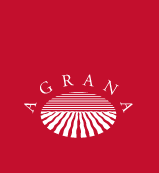Ground-breaking ceremony for € 40 million betaine plant at Tulln sugar refinery
Date: 09.04.2019The fruit, starch and sugar group AGRANA is constructing a betaine crystallisation plant at its sugar refinery in Tulln under a joint venture with US-based Amalgamated Sugar. The official ground-breaking ceremony for this project took place today in the presence of provincial government member Ludwig Schleritzko. The new plant, entailing the investment of around € 40 million, will take a year to construct.
AGRANA has been processing the sugar beet molasses obtained during the production of sugar at its Tulln site to make liquid betaine since 2015. The new plant, with a production capacity of around 8,500 metric tons of crystalline betaine per year, will make Tulln only the third manufacturing site worldwide where premium-quality, natural crystalline betaine is produced.
“We are looking forward to a successful partnership to produce premium-quality crystalline betaine. Diversification by means of betaine in our Sugar segment is essential to ideally exploit the full potential of sugar beets. This investment in a greater depth of sugar refining is therefore a top priority in the interests of safeguarding competitiveness,” as the CEOs of AGRANA and Amalgamated, Johann Marihart and John McCreedy, both agree.
About betaine
The natural substance betaine, found in sugar beet molasses, is characterised by numerous positive properties and can be used in many applications. Betaine is a methyl donor and has osmoregulatory properties, aids the liver to process fats, and biologically degrades the amino acid homocysteine, which can damage blood vessels when in high concentrations.
Betaine is used not only in food supplements and sport drinks to promote muscle development, but also in livestock rearing as a component in animal feeds. Due to its osmoregulatory properties at a cellular level, betaine is also used in cosmetic products. In tensides and detergent substances (e.g. shampoos and conditioners), betaine acts to stabilise the formation of foam and also conditions and strengthens the hair.
Regular investments in more efficiency and sustainable production
In recent years, AGRANA has been regularly investing in energy-efficient technologies and in increasing yields at its sites in Tulln and Leopoldsdorf. For example, a new crystalline sugar silo with a storage capacity of 70,000 metric tons was commissioned at the Tulln site in 2011. In 2012, low-temperature drying facilities were installed at both sites. These facilities allow desugared and pressed sugar beet pulp to be carefully dried and subsequently processed to make sugar beet pulp pellets as animal feed. The use of the waste heat from the upstream production processes has halved requirements of natural gas in the drying process. These modern facilities not only reduce odour and dust emissions but have already led to savings of 210,000 metric tons of CO2 equivalents. In 2015, the Tulln site successfully commissioned its expanded molasses desugaring plant (based on chromatography) in order to improve yields and extract betaine. “The near-100% exploitation of the agricultural commodities used and reliance on low-emission technologies are key aspects of our sustainability strategy,” Marihart highlights.
Speciality products and diversity
When it comes to the classic commodity sugar, AGRANA relies on speciality products in the form of an extensive product portfolio. The Wiener Zucker brand encompasses a total of 33 sugar varieties, including gelling sugars and treacles as well as various grades of icing sugar. Wiener Zucker has also included organic variants since 2008. Instead of chemical disinfectants, natural hop extracts are used throughout the entire production process. The Wiener Zucker brand therefore stands not only for top product quality and diversity but also for the products’ Austrian origins. Only locally-grown sugar beets are used in the manufacture of Wiener Zucker products.
Major economic footprint of AGRANA Zucker GmbH
In its last campaign, AGRANA Zucker GmbH produced around 700,000 metric tons of sugar from approximately five million metric tons of sugar beets at its nine sugar mills in Central and Eastern Europe. The sugar mill in Tulln is also the headquarters of AGRANA Zucker GmbH. It is here that AGRANA processes around 12,000 metric tons of sugar beets grown by Austrian contract farmers during a campaign starting in September and lasting for four to five months, depending on the harvest. Tulln is also home to the central sugar warehouse in which all of the sugar varieties produced and packaged under the Wiener Zucker brand are stored and picked in an automatichigh-bay warehouse with a capacity of around 8,000 metric tons of sugar products. The economic footprint of AGRANA Zucker GmbH is also impressive. The direct added value in the sugar segment amounting to € 130 million is nearly tripled to € 380 million by means of commodity purchases as well as downstream production and consumption-related expenses.
Picture Groundbreaking (fotocredit: AGRANA/Michaela Bruckberger)
Image Caption (from left):
AGRANA Sugar CEO Martin Doppler, major of Tulln Peter Eisenschenk, AGRANA Sugar General Manager Konrad Halwax, provincial government member (Lower Austria) Ludwig Schleritzko, AGRANA Group CEO Johann Marihart, AMALGAMATED Sugar Vice President Joe Huff, AMALGAMATED Sugar President John McCreedy, member of AMALGAMATED Sugar Business Development Committee Mike Garner, district governor of Tulln Andreas Riemer
About AGRANA
AGRANA adds value to agricultural commodities to produce top quality foodstuffs and numerous industrial upstream products. Around 9,400 personnel working at 58 production facilities worldwide generate consolidated annual revenues of around € 2.6 billion. The Group was founded in 1988, is the global leader in fruit preparations and also a major producer of fruit juice concentrates in Europe as well as being a key manufacturer of customised starch products and organic ethanol in its Starch segment. AGRANA is also one of today’s leading sugar companies in Central and Eastern Europe.
About Amalgamated Sugar
Amalgamated Sugar is the second-largest sugar beet producer in the USA, with a cooperative-based sugar beet acreage of around 73,000 hectares in Idaho, Oregon and Washington. Besides the production of around one million tonnes of sugar, Amalgamated Sugar also produces and sells animal feed. The company is the global leader in the technology for extracting crystalline betaine from sugar beet molasses.
